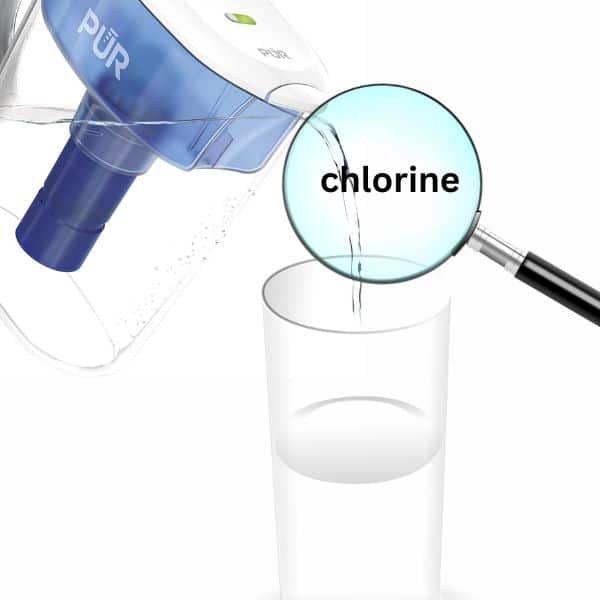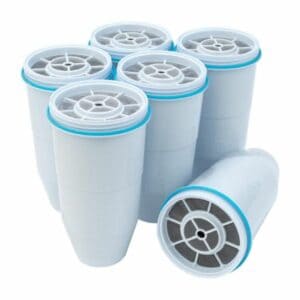Contaminants that PUR Water Filters Remove
PUR water filters are an effective way to remove contaminants from the water in your home. The PUR filter is designed to reduce various contaminants, including micro-organisms like bacteria, sediments, and other particles that can make tap water unpleasant tasting or even harmful. You can also check this list of pitchers that remove the most contaminants from your drinking water.
In addition to providing clean-tasting drinking water, PUR’s innovative technology also helps reduce exposure to potentially harmful chemicals like lead and chlorine.
Chlorine
Chlorine is one of the most common water contaminants and can make drinking water smell and taste unpleasant. Fortunately, PUR water pitchers offer a solution to this problem.
PUR Water Filters are designed to remove chlorine from tap water. They use a unique two-stage filtration system that uses activated carbon to reduce the amount of chlorine found in drinking water. This allows people to enjoy fresh, clean-tasting tap water without any harsh aftertaste or odor caused by chlorine contamination.
In addition, PUR filters also reduce other contaminants providing additional protection against potential health risks associated with contaminated water. For households concerned with the quality of their drinking water, PUR water filters are an effective way to ensure that tap water is safe and free from contaminants like chlorine.
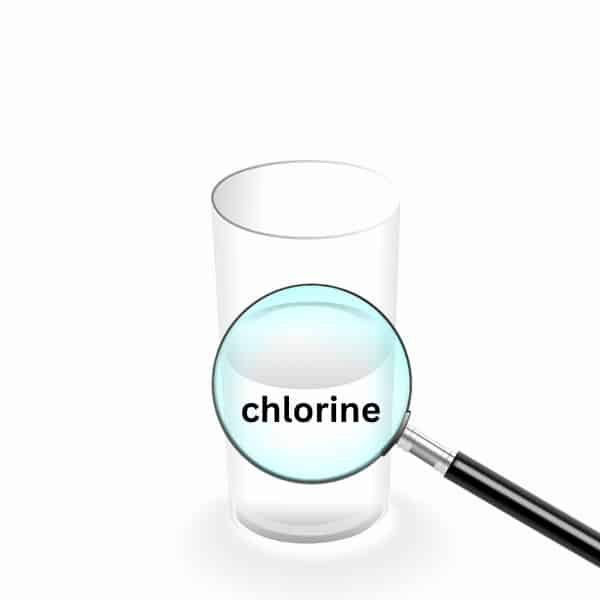
Heavy Metals
PUR Water Filters also remove heavy metals from drinking water. Heavy metals, such as lead, mercury, and arsenic, can have profound health implications if consumed in large quantities. PUR water pitcher filters use a multi-stage filtration system to reduce the number of contaminants in your drinking water.
This filtration system starts with a sediment filter that removes larger particles such as dirt, rust, and other debris from the water. It then moves on to an activated carbon filter which helps remove chlorine taste and odor from the water and any volatile organic compounds or VOCs that may be present.
The final stage is a powerful heavy metal reduction filter that reduces lead, copper, mercury, and other heavy metals to their safe levels for consumption. This ensures you get clean, safe drinking water free of any dangerous contaminants.
Disinfection Byproducts (DBPs)
PUR Water Filters provide homeowners with clean and safe drinking water. The filter technology used in PUR filters is designed to target multiple contaminants, including disinfection byproducts (DBPs). DBPs form when chlorine reacts with organic material in the water supply and can be harmful if consumed.
Removing DBPs from tap water is important in improving drinking water quality. Some of the most common chemicals removed by PUR filters include trihalomethanes (THMs) like chloroform and bromodichloromethane, haloacetic acids (HAAs), as well as volatile organic compounds (VOCs). These contaminants can cause health problems ranging from skin irritation to cancer. Ensuring these chemicals are filtered out of your drinking water is essential.
Volatile organic chemicals
PUR faucet filters are essential in keeping water free of potentially hazardous contaminants. Volatile organic compounds (VOCs) are a family of chemicals that can be found in our drinking water and present a threat to public health. Thankfully, PUR Water Filters have the technology to remove these VOCs, giving you peace of mind that your drinking water is safe and healthy.
The types of VOCs removed by PUR water filters include benzene, chloroform, tetrachloroethylene, xylene, and other common pollutants. These chemicals are used for industrial purposes but contaminate much of our groundwater supplies due to improper disposal or accidental leaks. By using a filter like PUR’s patented Maxion filtration system, you can ensure that any VOCs present in your water supply will be eliminated from the equation.

Pesticides and Herbicides
PUR water filters provide an easy and affordable way to filter out contaminants in drinking water. Pesticides and herbicides are one of the primary contaminants that PUR water filters are designed to remove. These chemicals can be dangerous due to their potential adverse health effects.
Pesticides and herbicides can enter drinking water from various sources, including agricultural runoff, commercial or residential use on nearby land, industrial spills or waste disposal sites, leaking underground fuel tanks, and improper sewage systems.
A PUR water filter’s highly advanced filtration system can remove 99% of these chemicals before they reach your tap. It passes the contaminated water through carbon-based media that traps these particles while keeping essential minerals intact. This process ensures safe drinking water without any unpleasant aftertaste or odor.
Bisphenol A (BPA) Plastic
Bisphenol A (BPA) plastic has been used in many products, including water bottles and other food containers. Unfortunately, BPA can leach into our drinking water, potentially causing health risks. Fortunately, PUR Water Filters are designed to remove this chemical from tap water.
PUR filters use a combination of activated carbon and ion exchange technology to reduce the presence of BPA and other types of contaminants in tap water. This enables them to trap particles as small as 40 nanometers in size, making it one of the most effective filtration systems available.
In addition to BPA, PUR reduces lead levels by up to 95%, chlorine tastes and odors by up to 96%, mercury by up to 99%, pesticide residues by up to 96%, pharmaceutical residues by up to 90%, and more.
Pharmaceuticals
PUR water filters have been used for decades to remove contaminants from tap water. Many people are unaware of one of the most important contaminants these filters remove: pharmaceuticals. Pharmaceuticals, such as prescription and over-the-counter medications, can be found in tap water and pose serious health risks if ingested.
When pollutants like pharmaceuticals from wastewater treatment plants enter our waterways, they can remain in drinking water sources for years without proper filtration. Fortunately, PUR water filters are designed to remove 97% of trace levels of certain pharmaceuticals like ibuprofen, atenolol, and fluoxetine before they reach your drinking glass. In addition to filtering out these dangerous substances, PUR’s sophisticated filtration system also removes other harmful contaminants that can cause unpleasant odors or bad tastes in your drinking water.
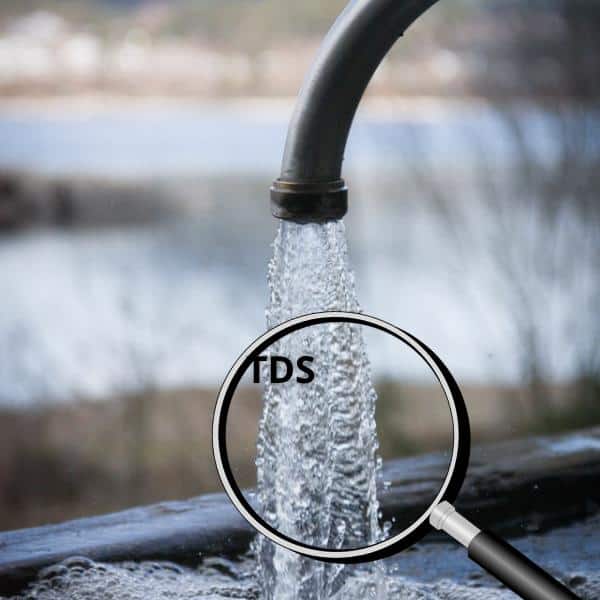
PUR Pitcher Filter vs PUR Plus Pitcher Filter
When it comes to water pitchers and filtration systems, PUR is one of the most trusted names in the business. With various pitcher filters available, finding the right solution for your home can be overwhelming. Here we’ll take a look at two popular models:
- The PUR Pitcher Filter
- The PUR Plus Pitcher Filter
The PUR faucet filter promises to reduce contaminants that could be hazardous to health, such as lead, mercury, chlorine, asbestos, and some pharmaceuticals. It also reduces bad tastes and odors from tap water while leaving essential minerals such as calcium and magnesium untouched – perfect for those who want their drinking water both clean and healthy! The filter is designed to fit all PUR pitchers and dispensers, so installation is super easy; just slide it into place, and you’re good to go!
On the other hand, the PUR Plus Pitcher Filter is an innovative way to clean your water. Using a four-step filtration process, this water filter pitcher can remove up to 96% of mercury and 95% of industrial pollutants from tap water, making it safe and healthy for drinking.
- The first step in the filtration process uses a dual-filter combination that traps sediment while reducing chlorine taste and odor.
- In the second step, activated carbon granules capture more contaminants like lead and other metals.
- For the third step, a patented MineralClear® filter infuses minerals back into the water for great tasting refreshment.
- Lastly, ion exchange resin reduces limescale buildup on appliances such as coffee makers or showerheads. This helps protect against hard water problems caused by calcium buildup over time.
The main difference between PUR Pitcher Filter and the PUR Plus Pitcher Filter is that the latter filters out micro-contaminants like pharmaceuticals, bacteria, and viruses not removed by the former. It also has an enhanced filter life; each filter can provide up to 40 gallons or two months’ worth of clean drinking water before replacing it.
Are PUR Filters NSF Certified?
PUR is an American-based company that produces a variety of water filter systems, but are they all NSF certified?
NSF certification is an important benchmark for verifying that a product meets specific safety and performance standards. It ensures that products will reduce contaminants as claimed by the manufacturer and are safe for drinking water. All PUR filtration systems are certified by NSF International.
By meeting those standards, PUR has earned its reputation as one of the top names in water filtration technology. This certification means that consumers can know their filter meets all criteria to reduce contaminants and provide high-quality drinking water.
In addition to being NSF certified, PUR filters also feature advanced technologies like Maxion™ Filter Technology and MineralClear® Filters, which help remove even more contaminants from tap water than other leading brands.
When shopping for a PUR water filter system, it’s essential to look out for this certification as it can help you feel confident that your product will perform up to expectations and provide clean and safe drinking water.
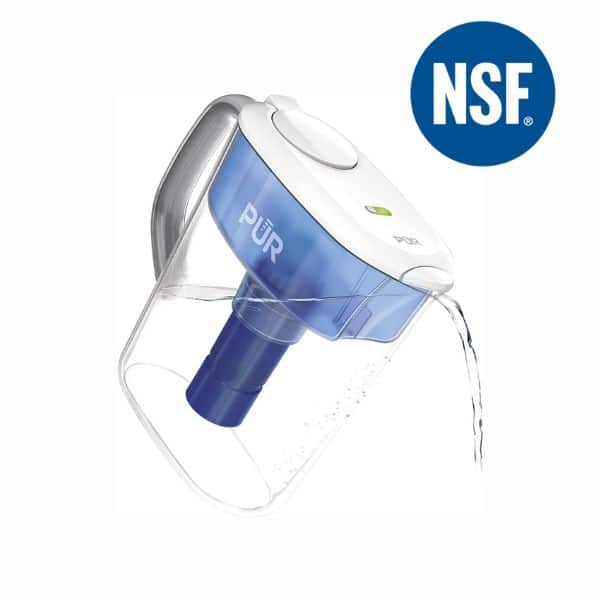
Do PUR Filters Remove Minerals?
Yes, PUR filters do remove minerals. This is because PUR pitcher filters are designed to reduce particulates, chlorine, and other chemicals in the water. In addition to these elements, most high-performance PUR filters also reduce the amount of minerals present in drinking water. These include magnesium, calcium, and other metals that can affect the taste and safety of water when consumed.
PUR water filter pitcher uses activated carbon to trap unwanted particles and reduce the presence of harmful chemicals in tap water. The filter consists of several layers containing activated carbon granules that attract impurities as they pass through. As such, minerals are trapped within the filter media before reaching your tap or glass – leading to a cleaner-tasting drink with no residue from unwanted contaminants.
Do PUR Filters Remove Fluoride?
Fluoride is often added to city water supplies by municipalities. While it has proven beneficial in preventing cavities, there is some evidence that too much of this mineral can harm health. PUR filters effectively screen out the fluoride from tap water, allowing people to control their exposure.
The PUR faucet filtration system is designed with layers that trap and block contaminants such as lead, other heavy metals, and chlorine. PUR products can also remove up to 70% of the naturally occurring fluoride found in tap water, making them very attractive for those concerned about toxic effects associated with high levels of fluoride consumption.
Do PUR Filters Remove Lead?
Yes, PUR water filtration systems are capable of removing lead from drinking water. There are several types available that are designed to reduce different contaminants in your water supply. The most common type of filter is a faucet-mounted or pitcher-style type that utilizes a combination of carbon and ion exchange to remove impurities. This PUR lead reduction filter can reduce up to 99% of all lead particles in the water, giving you clean and safe drinking water.
For more severe cases, reverse osmosis (RO) systems may be necessary if the lead levels in your tap water exceed the Environmental Protection Agency’s safety levels. These systems force the pressurized liquid through a membrane that traps any lead particles and keeps them out of your drinking supply. An RO system may be expensive but effectively deals with high lead concentrations in drinking water.
Do PUR Filters Remove Arsenic?
When it comes to arsenic, it’s essential to know that your water is safe for drinking. Arsenic is a naturally occurring element found in soil and groundwater and can be dangerous if present in large amounts. This has raised the question: do PUR filters remove arsenic?
Yes, but with certain qualifications. PUR filters effectively remove arsenic from drinking water when properly installed and maintained. They use activated carbon media to reduce levels of this chemical element by up to 99%. However, these filters are not designed for long-term removal of high levels of arsenic in the water supply; they should be used as a supplement rather than a primary treatment device if contamination levels are excessively high.
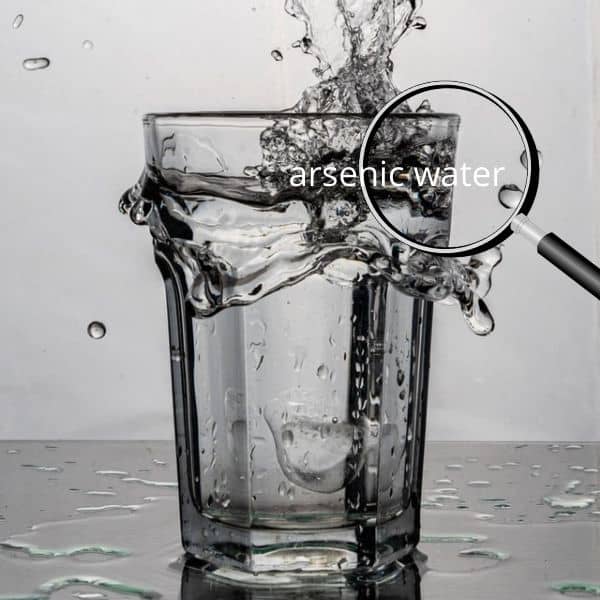
Do PUR Filters Remove Bacteria and Viruses?
According to the Environmental Protection Agency (EPA), PUR filters effectively reduce various types of bacteria, including E. coli and Salmonella, as well as protozoa such as Giardia lamblia and Cryptosporidium parvum that cause diarrhea. They also help eliminate more than 99% of the most common viruses in the water supply, like poliovirus type 1.
PUR filters are designed to remove 99% of common bacteria and protozoan cysts from tap water and reduce lead, chlorine taste and odor, mercury, sediment, and zinc. The filter removes pesticide residues such as atrazine and lindane from ground sources. In addition to these benefits, PUR filters use activated carbon technology to reduce virus levels by up to 99%. These virus-reducing capabilities make it one of the best options for ensuring clean drinking water in any home or office setting.
Conclusion
Pur Water Filters offer superior filtration technology to ensure you drink clean, healthy, and great-tasting water. They remove contaminants such as chlorine and lead, as well as sediment and other impurities like DBPs and VOCs. Depending on the type of filter, they can also reduce bad taste and odor from your water. As a result, Pur Water Filters can be a cost-effective way to provide your family with safe drinking water.
